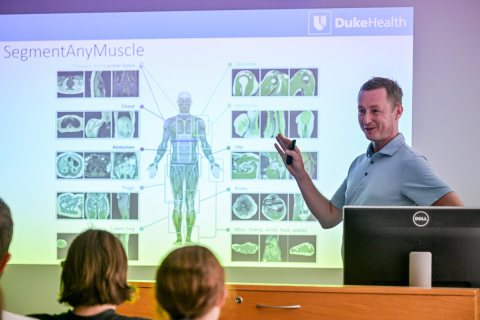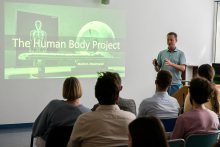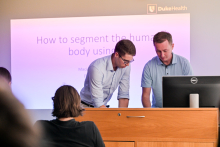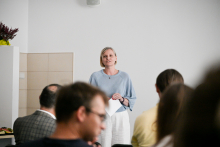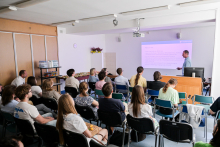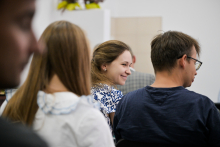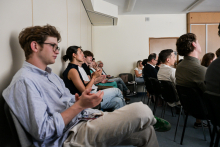How artificial intelligence algorithms can help radiology
WUM and hospital staff as well as students on internships and interested in new technologies and medicine, could all listen to a fascinating talk about the latest trends in artificial intelligence and the applications of foundation models in radiology.
Foundation models are advanced artificial intelligence algorithms trained on vast, diversified sets of data. This allows them to learn universal representations, and they can be successfully adapted for various tasks, which eliminates the need to train them from scratch for every problem. For radiology, this means better segmentation, classification and predictions, also in rare clinical cases.
The collaboration between the WUM and Duke University
Professor Mazurowski cut his own vacation short especially for us, and directly after sightseeing around Warsaw, came to the lecture hall at the UCC WUM hospital to share the results of his research. That includes the Human Body Project, aimed at creating a comprehensive foundation model for the human body, based on radiological data – which could potentially bring significant improvements in diagnostics and treatment personalization.
The lecture, which attracted many, was followed by an inspiring discussion with the audience.
Krzysztof Bartnik, PhD, the initiator of the visit, emphasized the following:
“Our continued cooperation with the Professor and his team is critical for the development of our research into AI in radiology. Together with teams from Duke University and the Warsaw University of Technology, we submitted a grant proposal (SONATINA, the National Science Centre), which was accepted! We will work on AI tools that support forecasting the efficacy of treatment for abdominal cavity neoplasms, based on the advanced analysis of radiological imaging. We hope that this visit marks the beginning of a successful long-term cooperation between Duke and WUM!”.
